Stefan Zweig series (Pushkin Press)
From Pushkin Press:
To read anything by Zweig is to risk addiction; in this collection the power of his writing-which, with its unabashed intensity and narrative drive, made him one of the bestselling and most acclaimed authors in the world-is clear and irresistible.
This book series was translated from the German by Anthea Bell. The covers were designed by Nathan Burton.
The typography for this series uses Lunda Modern (1998) Stefan Hattenbach’s revival of Karl Erik Forsberg’s italic Lunda (1941). [edit: On second look, it appears to be another (custom) version of Lunda, see comments.]
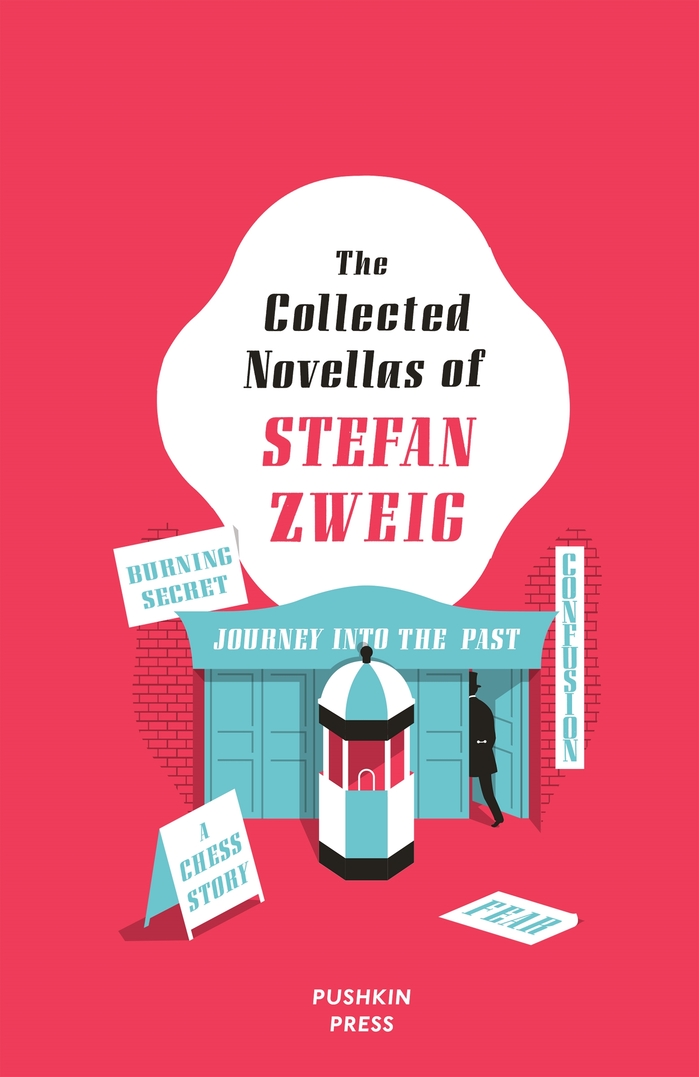
The Collected Novellas (hardback), 2015. In this illustration, Lunda also appears with upright letterforms. In this form, it resembles Corvinus or Quirinus (cf. Carrie Hamilton’s design for Giants of Jazz, 2004).
Formats
- Books (5422)
Topics
- Literature (2505)
Designers/Agencies
- Nathan Burton (1)
Tagged with
- book covers (4794)
- hardcovers (1076)
- Stefan Zweig (4)
- Pushkin Press (9)
- book series (428)
- translations (295)
- paperbacks/softcovers (1489)
- illustration (1267)
- type integrated with image (363)
- silhouettes (75)
- type on an angle (1062)
- stacked glyphs (433)
- italic/script on an angle (318)
- Anthea Bell (1)
- custom typeface digitizations (49)
Artwork location
- United Kingdom (2760)
- London (1521)



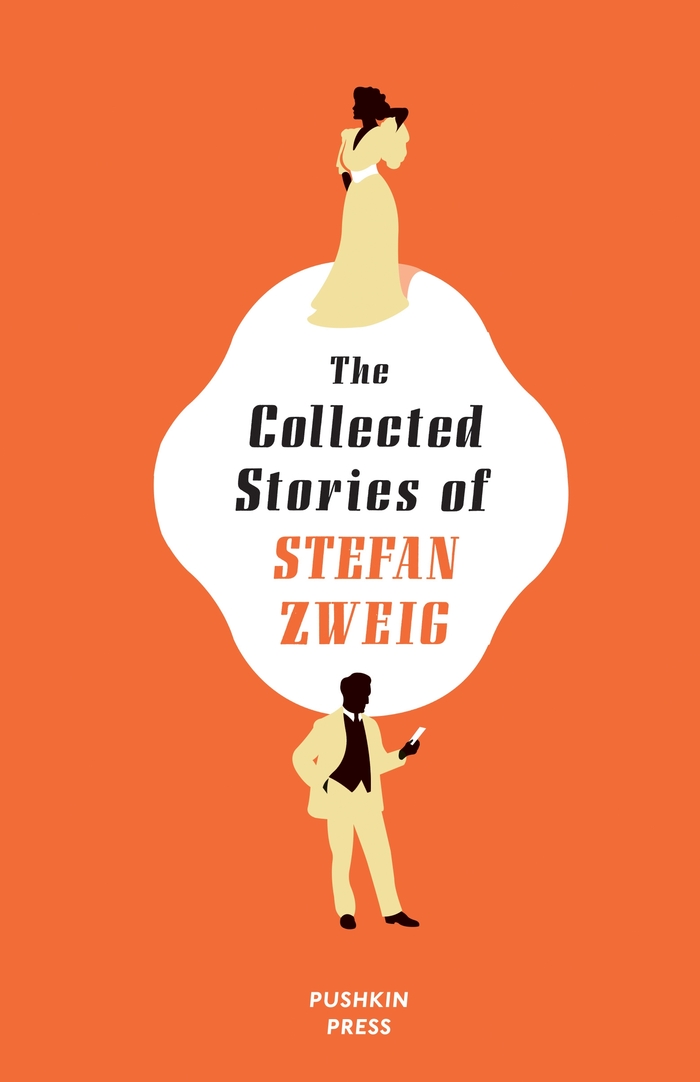
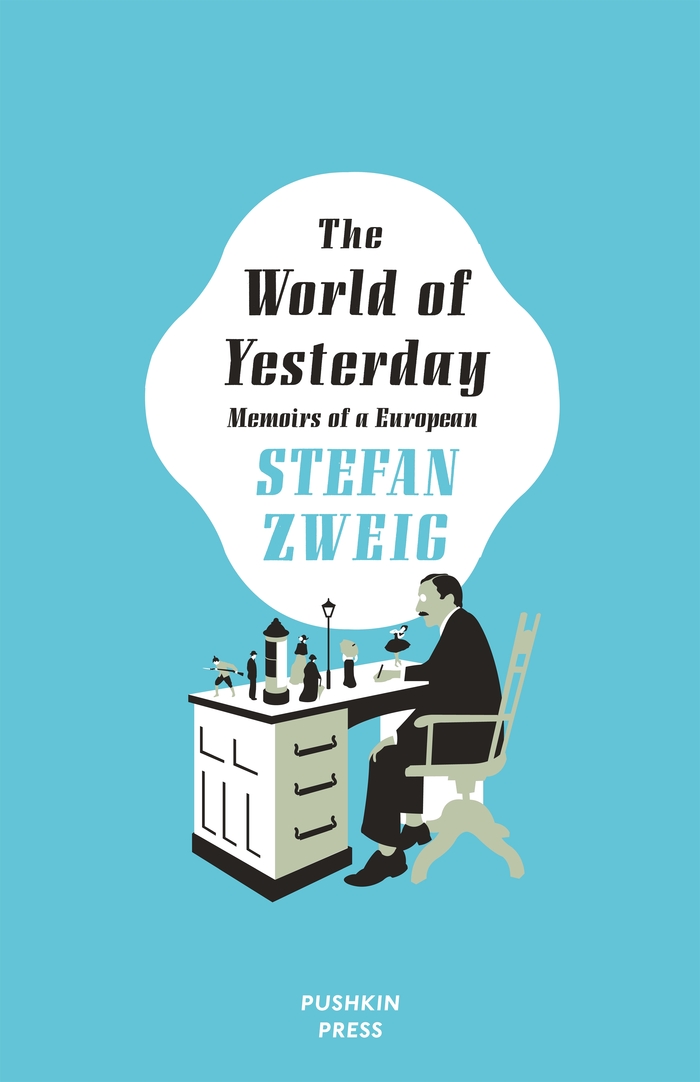
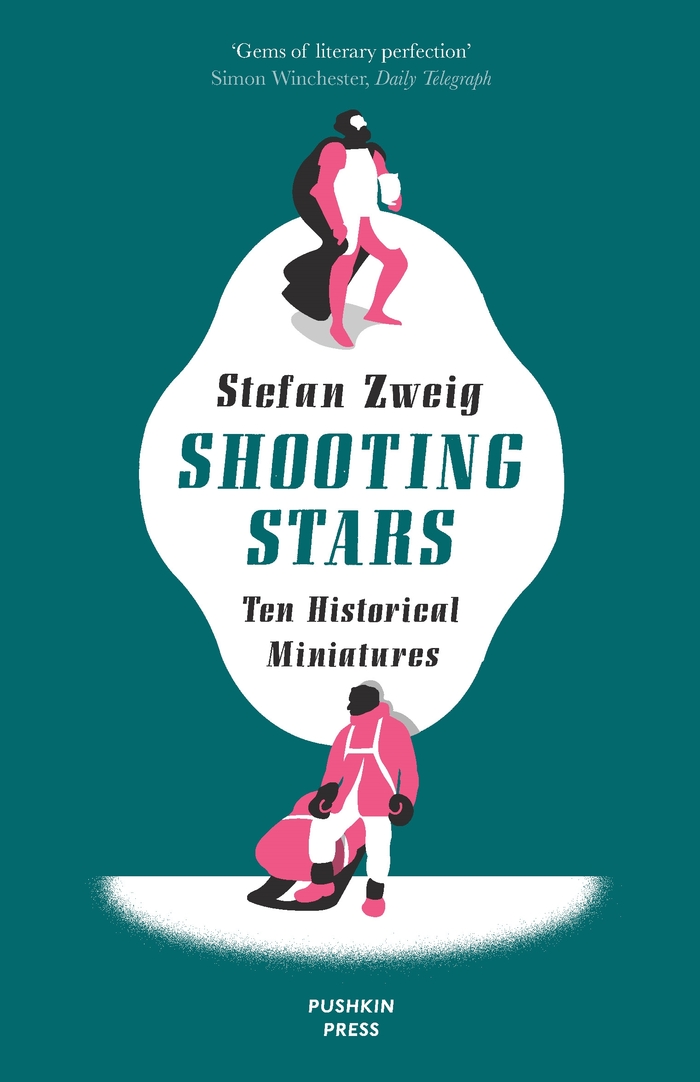
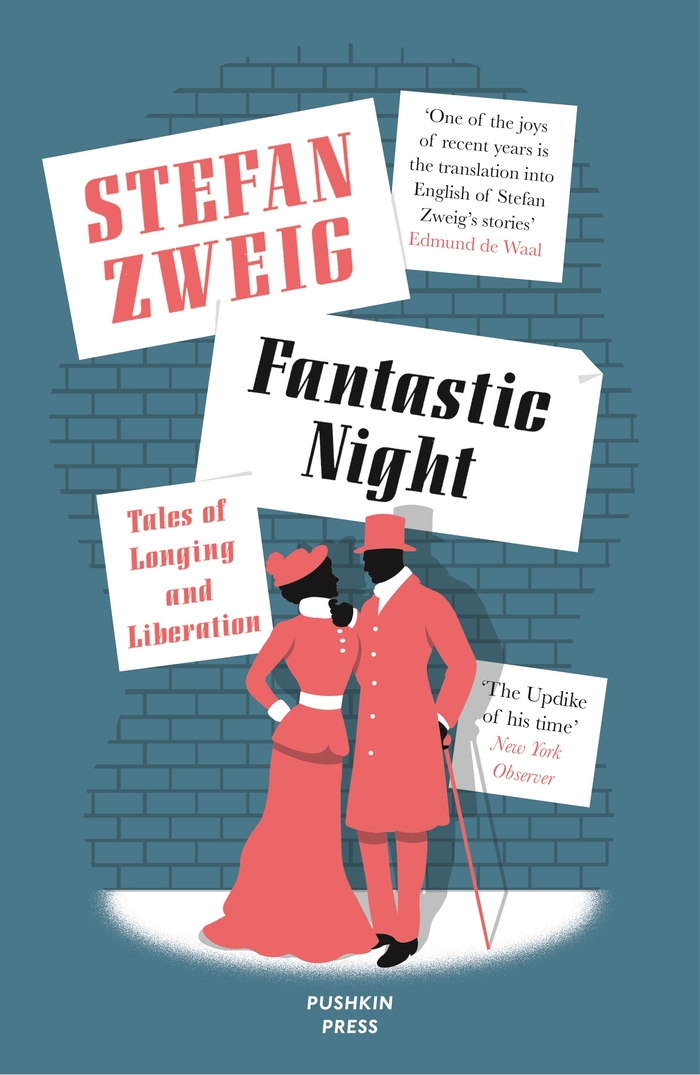
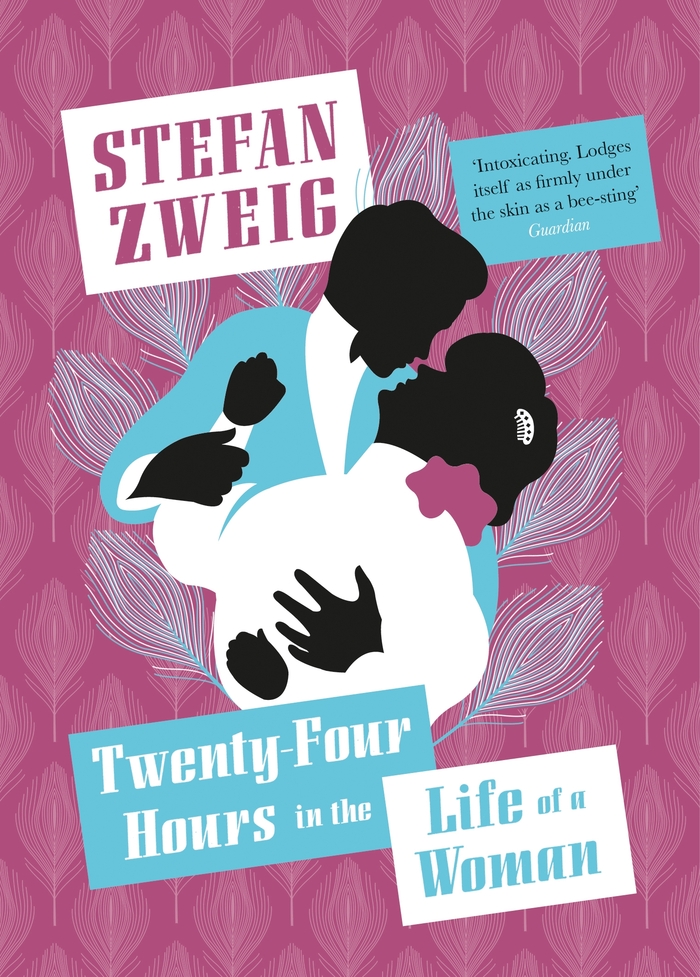
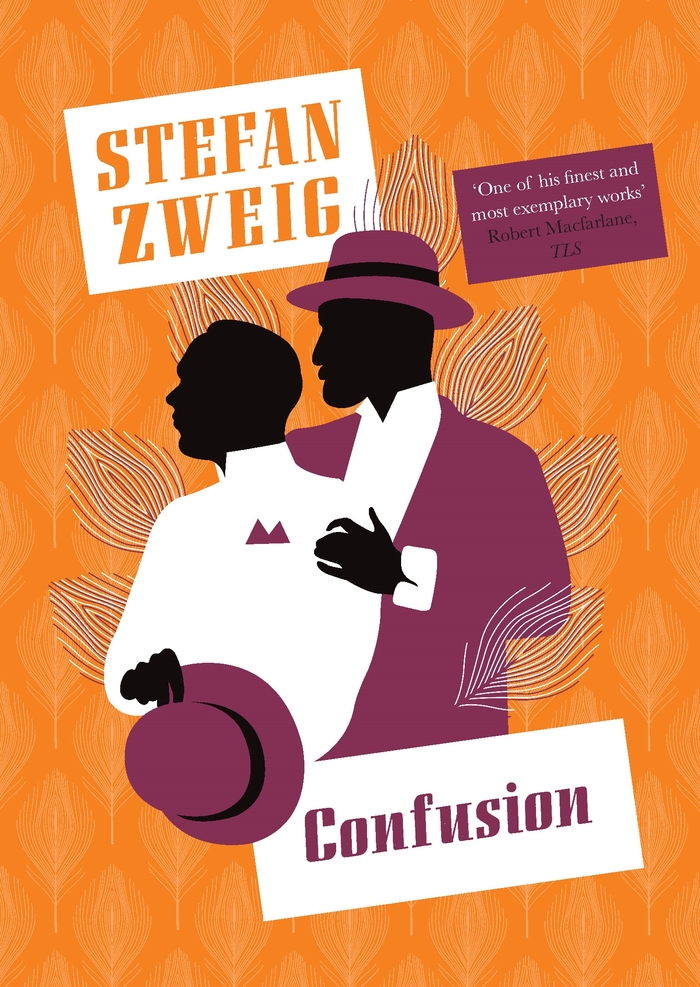


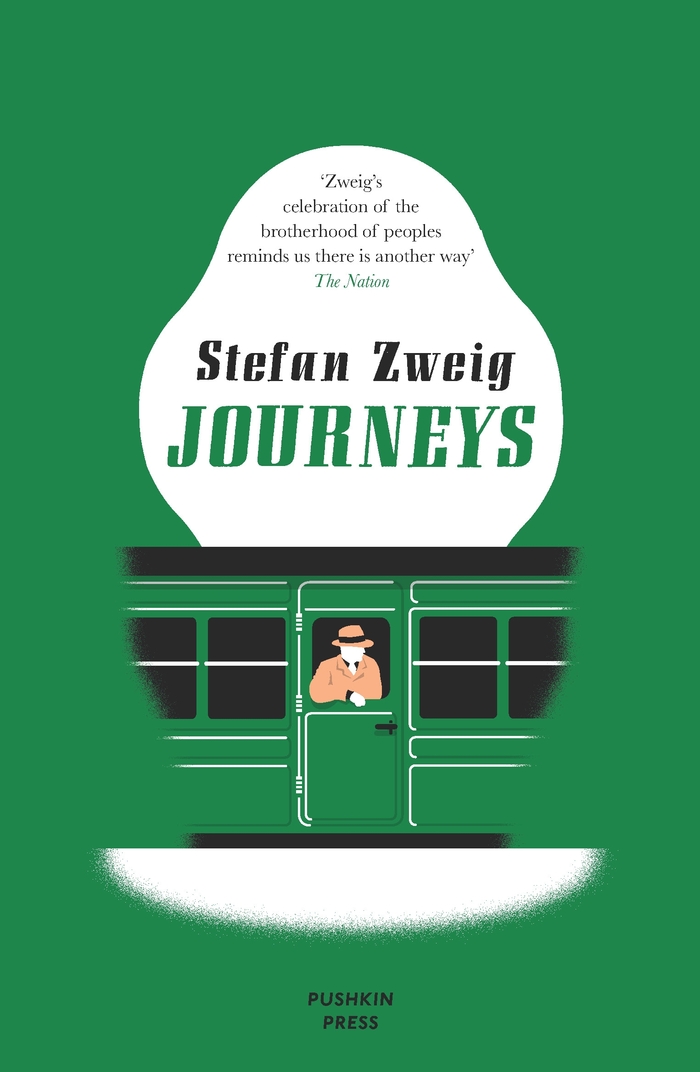











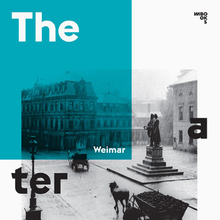




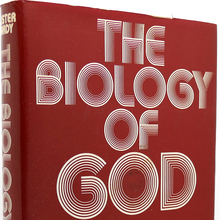

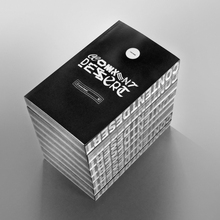












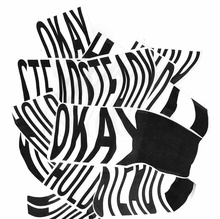















2 Comments on “Stefan Zweig series (Pushkin Press)”
Some of the spacing looked unbalanced. I took a closer look at Lunda Modern to check if that’s in the font. The image below shows details from a cover (left) and a resetting in Lunda Modern (right):
Turned out it’s not Lunda Modern! Burton must have used a different version of Lunda which stays closer to the original, see e.g. N or s. Maybe his own digitization?
Update: The method used here is an indirect one. The letterforms are typographic, but the arrangement is manual – it’s the digital equivalent of doing dry-transfer lettering with Letraset sheets. Via email, Nathan Burton tells me that his version of Lunda exists as a hi-res bitmap from a scanned specimen page: